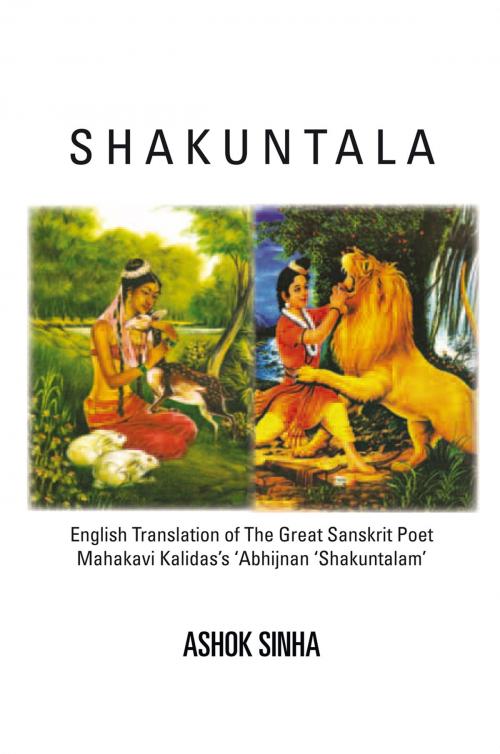Shakuntala
English Translation of the Great Sanskrit Poet Mahakavi Kalidas's 'Abhijnan Shakuntalam
Nonfiction, Entertainment, Theatre, Playwriting, Performing Arts| Author: | Ashok Sinha, Ashok K. Sinha | ISBN: | 9781462879342 |
| Publisher: | Xlibris US | Publication: | July 1, 2011 |
| Imprint: | Xlibris US | Language: | English |
| Author: | Ashok Sinha, Ashok K. Sinha |
| ISBN: | 9781462879342 |
| Publisher: | Xlibris US |
| Publication: | July 1, 2011 |
| Imprint: | Xlibris US |
| Language: | English |
This book is an English translation of the Sanskrit classic Play Abhijnan Shakuntalam by the great poet and Playwright Mahakavi Kalidas, written around 220 CE. The play is about the strange fate of Shakuntala, a simple, beautiful ascetic lady. King Dushyant meets her and falls in love with her. They get married. After some time, king Dushyant returns to his capital, assuring her that he would soon send for her. However, due to the curse by a wrathful sage, Durvasa, the king completely forgets about her. Humiliated, Shakuntala goes off into the forest to live by herself. In due course, she gives birth to a boy, whom she names Bharat. Fortuitously, following certain turns of events, Durvasas curse is removed, and the king remembers all about Shakuntala. He tries to find her, but of no avail. One day, he accidentally meets the young boy, Bharat, in the forest. The family is thus united and happily returns to the capital. Bharat grows up to become a great emperor. The original name of India is Bhaarat after his name. Rama, worshipped by Hindus all over the world as an Incarnation of God, was a descendent (some 6000-7000 years ago) of emperor Bharat.
This book is an English translation of the Sanskrit classic Play Abhijnan Shakuntalam by the great poet and Playwright Mahakavi Kalidas, written around 220 CE. The play is about the strange fate of Shakuntala, a simple, beautiful ascetic lady. King Dushyant meets her and falls in love with her. They get married. After some time, king Dushyant returns to his capital, assuring her that he would soon send for her. However, due to the curse by a wrathful sage, Durvasa, the king completely forgets about her. Humiliated, Shakuntala goes off into the forest to live by herself. In due course, she gives birth to a boy, whom she names Bharat. Fortuitously, following certain turns of events, Durvasas curse is removed, and the king remembers all about Shakuntala. He tries to find her, but of no avail. One day, he accidentally meets the young boy, Bharat, in the forest. The family is thus united and happily returns to the capital. Bharat grows up to become a great emperor. The original name of India is Bhaarat after his name. Rama, worshipped by Hindus all over the world as an Incarnation of God, was a descendent (some 6000-7000 years ago) of emperor Bharat.















